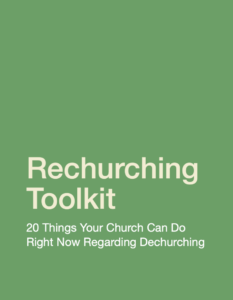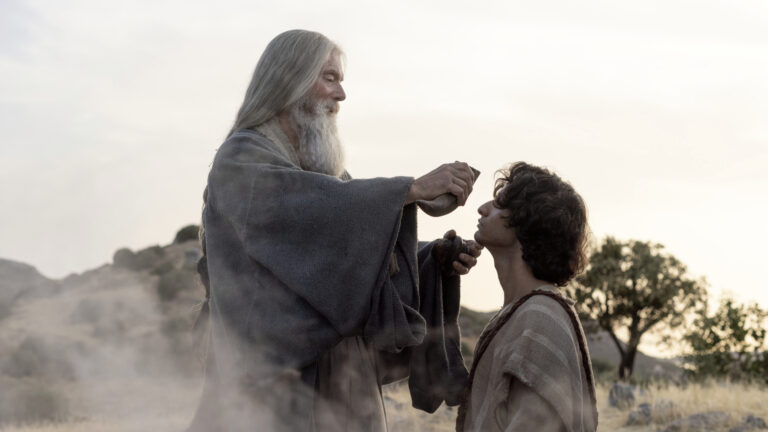Shivering in her jail cell and huddled with fellow prisoners for warmth, Ahn Ei Sook (later known by her married name, Esther Ahn Kim) heard moaning from a nearby cell. It was coming from a 20-year-old Chinese woman who had brutally murdered her husband.
The woman was said to be insane. She wore clothes that were always soiled, and her hands were tied behind her back since she refused to stop pounding the door. Ei Sook prayed that the woman would be moved to her cell so Ei Sook could tell her about Christ.
Eventually the prisoner was brought to Ei Sook’s cell, where she instantly tried to bite her cellmates. She and Ei Sook fell into a wrestling match until the woman finally collapsed onto the floor from exhaustion and fell asleep. For three days, her cold feet pressed against Ei Sook’s chest for warmth.
Ei Sook could never have foreseen her imprisonment in a Japanese cell. But the same powerful God who had carried her thus far would continue to work in the trying days ahead.
No Other God
Ahn Ei Sook was born in Korea on June 24, 1908. Two years later, the Empire of Japan annexed Korea, making it part of Japan for the next 35 years. Koreans were forced to worship at Shinto shrines and pray to Japanese gods, dead emperors, and former war heroes. Those who refused were sent to prison.
Ei Sook’s family was divided. Her mother followed Christ, and her father’s family practiced idol worship. She couldn’t help but notice the misery of idol worshipers compared to the quiet peace and happiness of her mother.
One night, her mother told her: “As you can see, idols have no power at all. The Lord Jesus is the only One who can give us true power and happiness and peace.” Seeing her mother’s faith in Jesus, Ei Sook also trusted him.
Preparing for Imprisonment
After finishing her education in Japan, she came home to Korea and taught music at a Christian school. When Japanese leaders threatened school closure and torture to any who wouldn’t bow to a Japanese sun goddess, everyone except Ei Sook bowed. Ei Sook was arrested, but miraculously escaped and went into hiding.
While in hiding, she prepared for arrest and imprisonment. Knowing she’d have no access to a Bible in prison, she committed more than 100 Bible chapters and many hymns to memory. She fasted from food and water for days at a time and slept in the cold, preparing her body and mind for the harsh conditions of prison.
Ministry to Japan
After the Lord led her to the city of Pyongyang, Ei Sook met with many other persecuted Christians. One day, a stranger named Elder Park came to her house and told her how God had led him to go to Pyongyang to tell her they’d both been called to proclaim the truth of Christ in Japan.
Despite her initial hesitation, Ei Sook fasted, prayed, and read her Bible for three days. She knew God was calling her to Japan, and she knew that to be beaten, starved, or killed would be better than to disobey him.
She knew God was calling her to Japan, and she knew that to be beaten, starved, or killed would be better than to disobey him.
In Japan, Ei Sook and Elder Park publicly called the Japanese government to repent, withdraw from Korea, and to examine which was the true religion—Shintoism or Christianity. Immediately, they were arrested.
Grace in Prison
From 1939 to 1945, Ei Sook lived in a Japanese prison in Pyongyang. She and her fellow prisoners were constantly hungry, faced extreme cold, and were frequently yelled at by harsh and hateful female jailers. But the Lord also brought jailers who loved Ei Sook and became Christians.
Repeatedly, Ei Sook cried out to God for strength, knowing how weak and incapable she was apart from his help. Many of Ei Sook’s fellow prisoners trusted Christ because of her love for them and the witness of her faith. She loved the unlovely—like the young Chinese woman facing execution for murdering her husband.
Ei Sook shared her food, combed the woman’s tangled hair, and massaged her body. She told her of the love of Jesus and his offer of forgiveness. Over time, the jailers noticed a change in the young woman. When the executioners came for her, they did not have to use handcuffs. Having received the peace of Christ, she walked toward death in faith.
Supernatural Power
On August 15, 1945, Japan surrendered, and the prisoners were soon released. Ei Sook moved to the United States to attend seminary, where she met and married a pastor named Dong Myun Kim. They took the English names of Don and Esther Kim.
In the 1950s, they planted Berendo Street Baptist Church in the middle of Koreatown in Los Angeles, where Don pastored for almost 40 years. The couple worked tirelessly for the gospel for the rest of their lives, together doing missionary work and church-planting ministry in South America.
I knew it would be impossible for me to keep my faith in my own power. God would have to work through me if I was to stand firm.
Esther Ahn Kim died in 1997 after facing Alzheimer’s.
Throughout her ministry, Esther Ahn Kim made sure that others knew the source of her faithfulness and endurance, writing in her internationally bestselling book, If I Perish: “I knew it would be impossible for me to keep my faith in my own power. God would have to work through me if I was to stand firm.”
And in his faithfulness, he did.
Learning from Kim’s Steadfast Endurance
Esther Ahn Kim’s steadfast endurance should cause us to ask ourselves three important questions:
- In what ways are you trying to be faithful in your own strength (2 Cor. 4:7–10)?
- How does knowing that God loved you before you loved him (1 John 4:7–11) encourage you in difficult relationships when loving others is costly?
- What Bible passage could you commit to memory as a way to prepare for future trials (Ps. 119:10–11)?
This article is adapted from the new book 12 Faithful Women: Portraits of Steadfast Endurance in the Christian Life (TGC, 2020).
20 Things You Can Do Right Now to Prevent Dechurching
 We’re currently experiencing the largest and fastest religious shift in the history of the United States. But there are practical things we can do inside our local churches.
We’re currently experiencing the largest and fastest religious shift in the history of the United States. But there are practical things we can do inside our local churches.
Jim Davis and Michael Graham have commissioned the largest and most comprehensive study of dechurching in America. Informed by their findings, they’ve written a book and developed this corresponding toolkit with resources to help you address the dechurching phenomenon.
We’re delighted to offer you the ‘Rechurching Toolkit’ for FREE today. Click on the link below to get instant access to this resource—worth $100—and be equipped to understand and address the issues behind dechurching.































